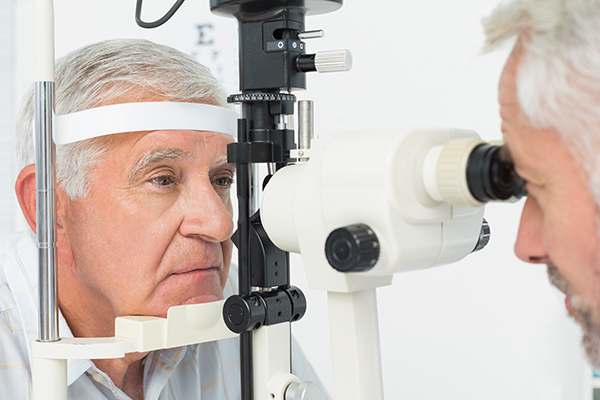
The following article is excerpted from Healthy Aging® Magazine. To continue reading this article and more like it, log in or subscribe to Healthy Aging® Magazine, the lifestyle magazine that is all about following your passion and what you can do rather than what you can’t.
As we grow older, many people choose to implement healthy habits and lifestyle choices to support their aging journey. Our focus often centers on memory and mobility as indicators of our overall health—and for good reason. The longer we can preserve our memory and mobility, the better quality of life we have as we age, so why not opt for a healthy lifestyle?
But, as an eye care provider, there is one thing I’d like to urge you not to put on the back burner—your vision.
Many people over age 50 experience some decline in their vision. For example, it’s very common to begin to need reading glasses as you get older, but if you start to see more changes, like dulling of color, or if you are having trouble driving at night—it could be cataracts, and it’s time to see your eye doctor.
What Are Cataracts?
In our 40s, the proteins in the lens of our eyes start to break down and lose their normal structure. These clumps form clouding, known as cataracts. Vision, in turn, becomes blurry or cloudy, colors may look faded, you may experience poor night vision, see halos around lights, and have trouble reading.
Everyone who lives long enough will get cataracts. Still, diabetes, smoking, spending a lot of time in the sun, and anti-inflammatory steroids can put you at a higher risk of developing them at a younger age.
The Promise of Cataract Surgery
Cataract surgery is the most frequently performed surgical procedure on Earth, with nearly 30 million cataract surgeries completed every year. And the surgery can be transformative for people. During the surgery, when we replace the eye’s cloudy lens with a clear lens known as an intraocular lens (IOL), patients not only regain corrected vision but often experience the vision of someone younger.
Filling the Knowledge Gaps
If this cataract information is news to you, you’re not alone.
To continue reading this article, click here: How Cataract Surgery Can Help Turn Back the Clock on Your Vision
The above article is excerpted from Healthy Aging® Magazine. To continue reading this article and more like it, log in or subscribe to Healthy Aging® Magazine, the lifestyle magazine that is all about following your passion and what you can do rather than what you can’t.
Dr. Neda Shamie is a cataract, LASIK, and corneal surgeon and partner of the Maloney-Shamie Vision Institute in Los Angeles. She previously was the Medical Director of the Doheny Eye Institute in Beverly Hills, is currently an Adjunct Clinical Professor of Ophthalmology at the USC Keck School of Medicine, and is an Alcon consultant.

This content is offered exclusively to Healthy Aging® Magazine subscribers.
Already a subscriber?
Log in now
Subscribe Today
Healthy Aging® Magazine offers in-depth feature articles, tips and information on how to achieve a healthy lifestyle. Enjoy features on diet and exercise, mental, social and financial wellness, active travel, and recipes! You will find ways to follow your passion, ideas for how to redefine yourself and stay active as well as profiles on inspirational people.Your subscription includes:
- ✔ Quarterly digital Healthy Aging® Magazines.
- ✔ Free monthly digital newsletter.
- ✔ Special free offers throughout the year.










